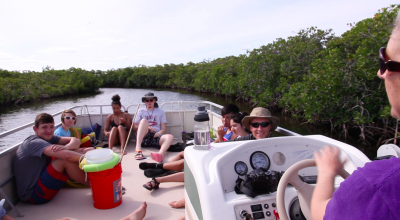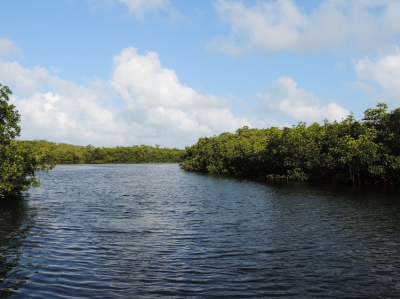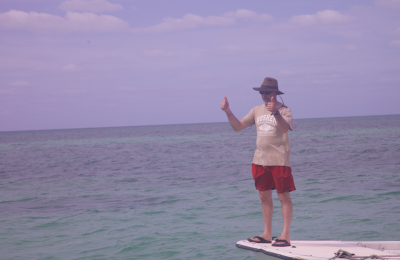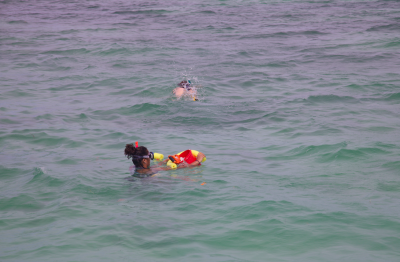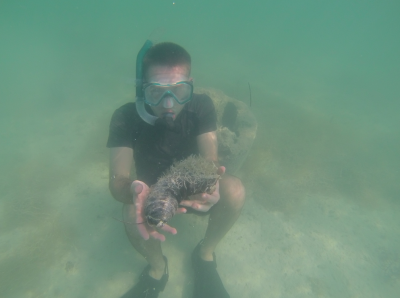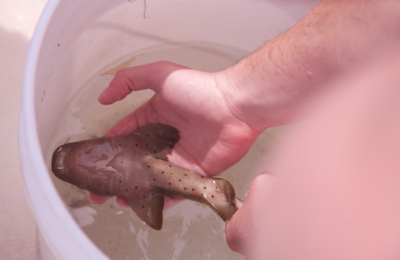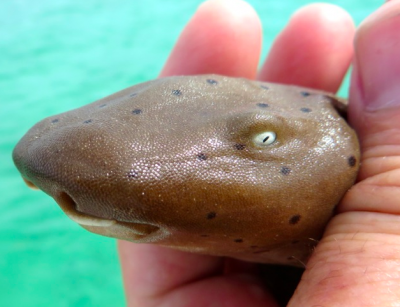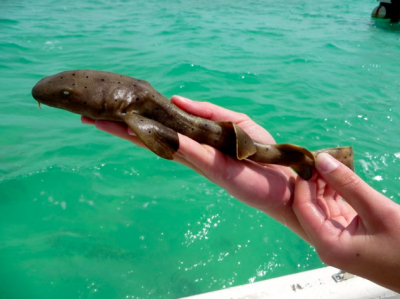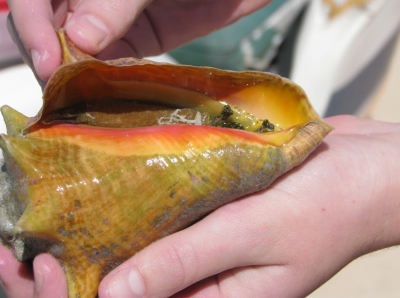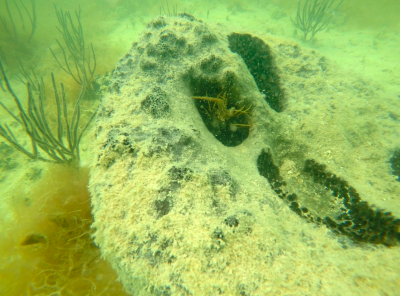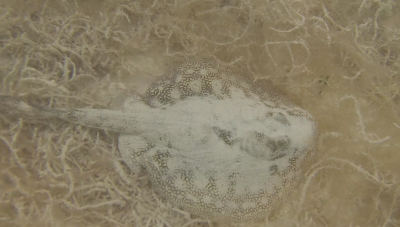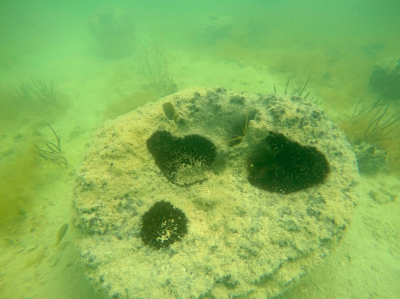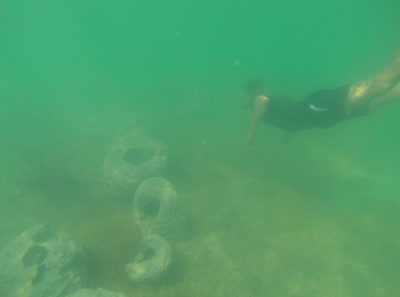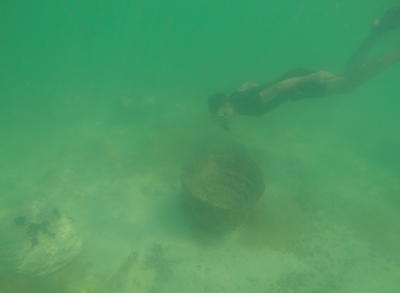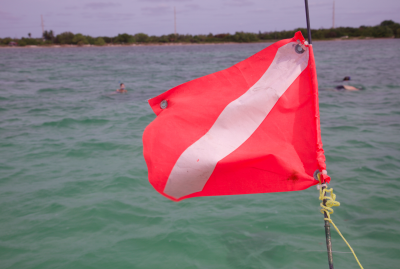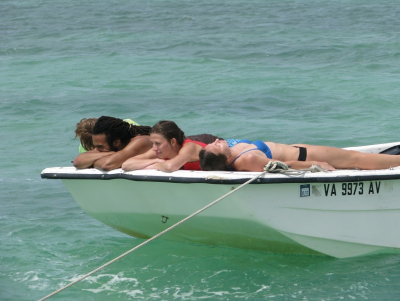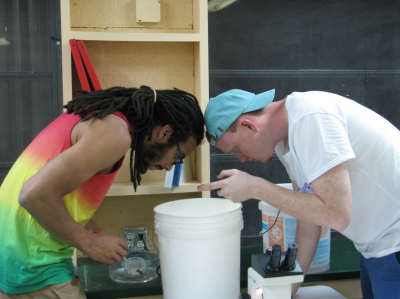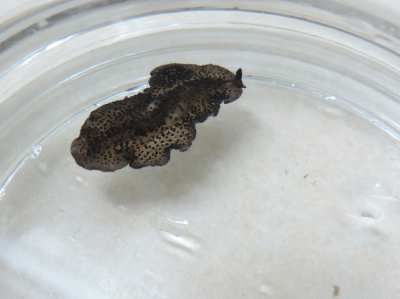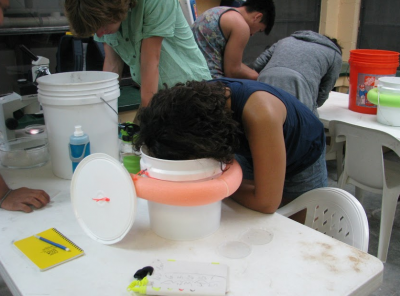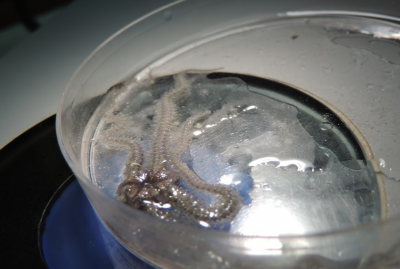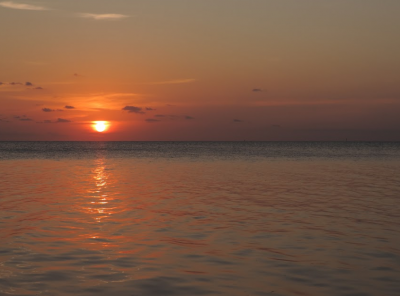April 30th
Today our morning lecture focused on mangrove ecology and the significant impact that these seaside plants have on the Florida Bay. Mangroves provide food and shelter for many creatures, filter seawater, and help to stabilize Florida coastlines. Here in the Keys, there are three prevalent Mangrove species: Avicennia germinans (Black Mangrove), Rhizophora mangle (Red Mangrove), and Laguncularia racemosa (White Mangrove).
After lecture our group braved the windy weather and traveled to a novel hard-bottom site to observe sponge communities. We saw loggerhead sponges, vase sponges, brown rope sponges, and fire sponges –all of which housed a variety of fish, spiny lobsters and crabs. Though we were all excited to collect data at this unique site, the strong wind and waves made it difficult to swim and communicate. While there, each research group observed and collected data on sponge size and the diversity of animals around and inside each sponge.
The afternoon consisted of cleaning the station and resting until our evening lecture. During our lecture we learned of the roles that sponges play in filtering the Bay water and discussed different sponge restoration methods. In the early 90s, a large sponge die-off occurred in the Keys and sponge communities have struggled to maintain populations ever since. These restoration projects could greatly improve the water chemistry and marine communities through developing the sponge populations.
As the sun set we geared up for another swim, this time a night snorkel at Lime Tree Bay. We all entered the water with trepidation, but gained confidence as spiny lobsters, shrimp, and fish were easily visible with our flashlights. After a while, we turned off our lights and sought out the bioluminescent microorganisms of the Bay. As our eyes adjusted, tiny blue sparks began to appear trailing our hands and flashes of light traced each agitation of the water. Though we were nervous at first and a few individuals were stung by small jellyfish, we all agreed that this night dive was an unforgettable experience.
-Reena Ramos ’18





